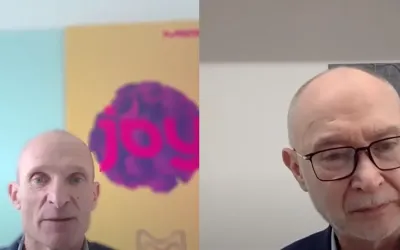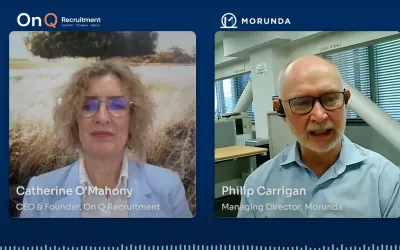
Technology Provides Opportunities for Medical Device Companies
Will 2016 be the year that medical device companies cash in and navigate terrains that are increasingly integrated with new technology?
In a recent press conference held by the Japan Medical Imaging and Radiological Systems Industries Association (JIRA), Mr. Kencihi Komatsu talked about the rapid changes in the medical device industry since 2014 as well as future prospects. He discussed the importance of the continued research and development of medical technology (medtech) and urged the government to continue promoting this exciting industry, believing it could be a major export success for Japan.
At every turn, new devices are appearing on the market; a smart water bottle from Hidrate Spark tracks how much water you drink and sends information about your fluid intake to a smartphone (the bottle glows to remind users to take a sip), mothers to be can have pregnancy test that is sent to their smartphone along with an app that not only shows you to interpret the results, but also provide expert advice for pregnant women hoping to conceive.
Medtech could also potentially be a major force in preventive medicine. French-based health group VisioMed recently introduced its Bewell Connect health management suite, which includes a smartphone app that communicates with its connected blood pressure and glucose monitor, thermometer, and blood oxygen sensor and can seek Medical help if required. Furthermore, a handheld connected device unveiled by Las Vegas-based startup MedWand allows consumers to measure temperature, heart rate, and oxygen levels and includes a camera to examine the throat and inner ear to enable doctors to perform an exam online. Soon it may become possible for an individual to easily check his or her health by connecting a sensor to a smartphone or other device. There are also hopes that the nation’s growing medical expenditures could be curbed by the early detection of disease.
How will the major players in the medtech space be able to capitalize on all these developments?
Global medical device maker Medtronic’s acquisition of Covidien in a cash-and-stock deal valued at close to $43 billion means Medtronic is now in the same ballpark as Johnson & Johnson (J&J), which is the largest device and diagnostics business. However, both companies have struggled to keep up with previously high medtech growth rates, which now are in the low single digit number range.
Koninklijke Philips, the Dutch technology company headquartered in Amsterdam, is aggressively pursuing the pot of gold at the end to the medtech rainbow. Not a week goes by without them announcing another “wearable,” “cloud,” or “handheld” product. However, its biggest deal so far has been a planned acquisition of catheter-based imaging company Volcano for $1.2 billion. The hope is that Phillips can cash in on an aging population’s need for more complex treatments. Thus far, analysts haven’t been so enthused about the deal since Volcano was in its own growth slump already.
The North American powerhouse J&J seems keen to embrace medtech change and innovation, supported by its elaborate early stage venture cultivation. The world’s largest medical device and diagnostics business is aggressively defending that title. The company says it will unveil more than 30 major products by the end of 2016 and is aggressively expanding into emerging markets with nearly $2 billion annual R&D budget. J&J (with high performing electrophysiology business Biosense Webster a recent feather in their cap) will compete with Abbott Laboratories who themselves entered the space last October with partnerships and investments in three separate companies; Topera, Advanced Cardiac Therapeutics and VytronUS
When the news came out in January that Google planned to develop a contact lens that could help diabetics keep track of their blood glucose levels, company officials of the Swiss health care giant Novartis quickly raised their hand, indicating they would be interested in bringing such products to market. As a result, Novartis’ Alcon has agreed to in-license Google’s “smart lens” technology for all ocular medical uses.
Only time will tell who will be the big winners in the medtech space, but one thing for certain is that it will play an increasingly important role in all of our lives.
You may also enjoy
How Marketing Moves In Mysterious Ways
How to Hire A Medical Doctor Who Is A Business Person First
Transforming from a Key Opinion Leader to a Key Account
Morunda should be your choice of recruiting partner in Japan and Asia Pacific. Why? Because we live and breathe the pharmaceutical industry in Asia and the Pacific—we’re specialists!
- Morunda has completed over 400 managers to director-level placements since 2001.
- A cultural understanding of what it takes to secure top talent
Over one hundred thought leadership articles published. - We hold regular seminars for candidates and clients alike with industry experts.
- We understand the market, not only today, but where it is heading in the next 12 to 18 months
Recent Posts
- Time Kills Deals: Why Speed is Your Most Powerful Hiring Tool
- Beyond the Paycheck: The Four Pillars of Attracting Top Talent in 2026
- The Experience Premium: Why 55 is the New 40 in Tokyo
- Beyond the “Black Swan”: Why Life Science Firms Must Pivot from Perfection to Potential in 2026
- The “Player-Coach” Era: Why Your Technical Pedigree is No Longer Enough


